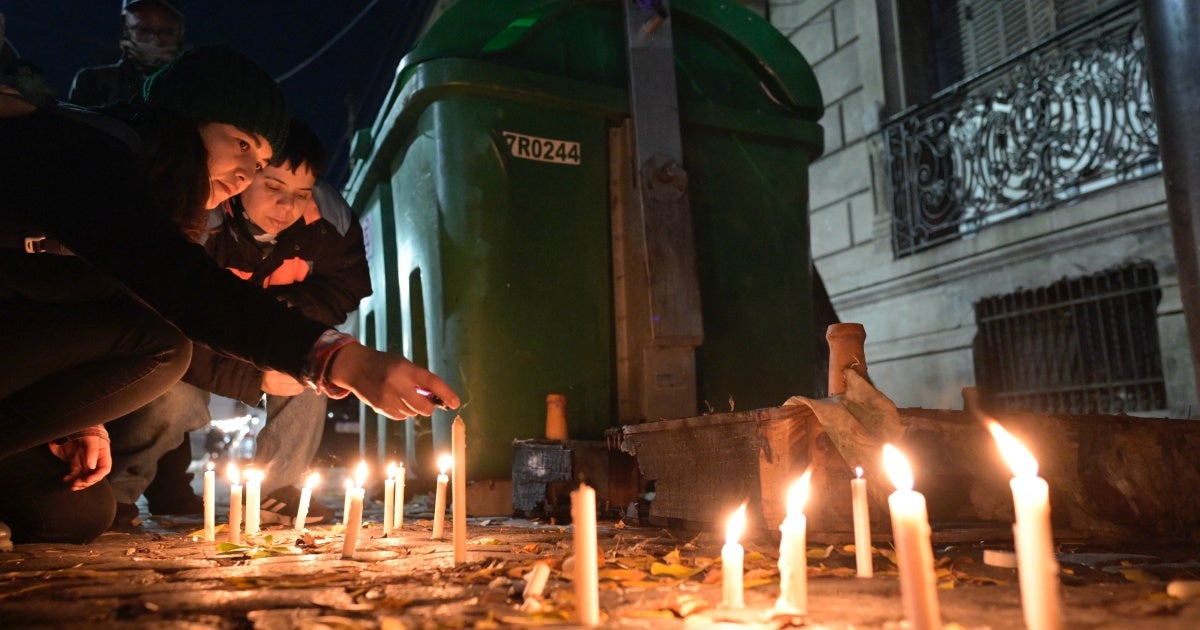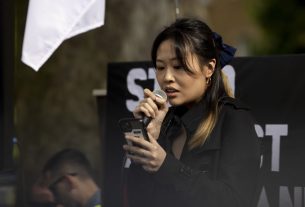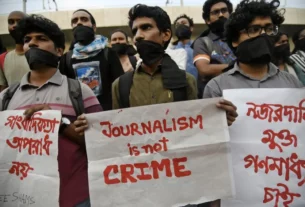Three lesbian women have died and one more is in critical condition in Buenos Aires, Argentina, after a man threw a Molotov cocktail into their boarding house room on May 6, setting them all on fire. One woman, Pamela Fabiana Cobas, was severely burned and died almost immediately. Her partner, Mercedes Roxana Figueroa, died of organ failure two days later, with burns covering 90 percent of her body. Andrea Amarante died in the hospital on May 12.
Police arrested a 62-year-old male suspect but have not announced a motive for the attack. Local human rights defenders have expressed concern that disparaging comments about lesbian, gay, bisexual, and transgender (LGBT) people and their rights made by prominent politicians, some of whom are now holding high office, are contributing to already high levels of violence against queer communities. The 2023 report from Buenos Aires’ LGBT ombudsman found that offensive speech by members of President Javier Milei’s political party, as well as on social media and in the streets, in the context of the 2023 presidential campaign “built a climate of segregation, rejection and discrimination; the most fertile ground for violence toward historically vulnerable groups.”
In May 2023, then-candidate Milei said on TV that education on gender and sexuality seeks to “exterminate the population” and causes “the destruction of the most important social nucleus within society … the family.” In November 2023, now-Foreign Minister Diana Mondino claimed to support marriage equality, but then compared it to head lice in a nationally televised interview, saying: “If you prefer not to bathe and be full of lice and it is your choice … then don’t complain if there is someone who does not like that you have lice.”
A 2023 Human Rights Watch investigation found that around the world, lesbian, bisexual, and queer (LBQ+) couples have been murdered, sexually assaulted, dismembered, or physically attacked alongside their partners. The report found that this “risk of lethal violence” to couples is chronically under-documented. In 26 countries, including Argentina, interviewees repeatedly cited “the extreme danger of appearing in public with an LBQ+ partner as a reason to stay home, refrain from holding their partners’ hand, or otherwise limit their movement and queer signaling.” In Argentina, where government data from 2023 showed 41.7 percent of the population lives in poverty, lesbian couples face heightened barriers to secure housing, limiting their ability to use the privacy of a home to protect themselves.
Authorities in Argentina should conduct a thorough and transparent investigation into the killings and ensure proper medical care and housing for the surviving woman. Government officials should cease and condemn rhetoric that stigmatizes queer women and may contribute to a climate in which they are seen as deserving of violence.



